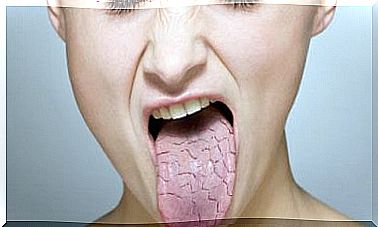Cortisol
Cortisol is a hormone considered the main glucocorticoid in humans. This is synthesized from cholesterol, from the cells of the adrenal cortex. Normally the amount of cortisol secretion is usually 10 to 20 mg per day, directly regulated by the circadian cycle.
Cortisol and its natural release
Its concentration in blood plasma varies according to the hours of the day. Its maximum peak occurs during the early hours of the day and reaches its lowest point at midnight. The constant release of the hormone can also occur under a physical or emotional destabilization, causing it to get out of control of its base, which is the circadian cycle or sleep-wake cycle.
The processes in which cortisol acts are directly mediated by glucocorticoid receptors and mineralocorticoid receptors, belonging to those who regulate gene transcription. Each of these receptors have an affinity not only for cortisol but also for corticosterone and aldosterone. Its actions are diverse and it is the main component of certain physiological processes such as:
- Stress.
- Memory.
- Insomnia.
- Gluconeogenesis.
- Protein synthesis.
Processes in which cortisol intervenes
1. Response to stress

In stress, not only adrenaline plays an important role, but also cortisol. The fight or flight has as a response the increase in cortisol production that directly helps the survival process to be overcome correctly and without any deficit in the physiological actions that occur in the chain of events.
2. Memory
Memory not only requires the brain, but also the neuroendocrine system. In fact, it is necessary to consolidate the information. Serum cortisol levels have an impact on memory. Especially if they exceed normal levels or if the individual is in a period of stress. The effect of high levels of cortisol in the blood produced by chronic stress, leads to a degenerative process of short-term memory and selective attention.
3. Insomnia

During sleep there are stages of slow waves and fast waves. To achieve a full sleep period, it is necessary that the hypothalamic-pituitary-adrenal axis is regulated and in optimal condition. As it is in this way the amounts of cortisol will be released with appropriate values. Sleep disorders are associated with HHA axis dysfunction at night. This causes insomnia and, with it, night awakenings with great frequency.
4. Gluconeogenesis
In this process, cortisol fulfills the action of counter-regulating insulin. This involves the aggregation of glucose into the blood from a reserve source, the liver. Glucose mediated by a physiological reserve source is synthesized from alternate substrates, such as proteins or fats found in the liver. Therefore, on occasions, it can generate the tendency to hyperglycemia.
5. Protein synthesis
This is another of the responses of cortisol in the body. Protein synthesis is regulated by the corticotropic hormone, to a great extent, under a catabolic mechanism. Being catabolic, cortisol causes loss of muscle tissue. Tissue that will be used later in the obtaining of glucose in the liver, as part of the energy reserves. And, in this way, maintain the vigil state of the individual.
6. Immune system
High levels of cortisol in the blood cause changes in leukocytes, responsible for fighting potential diseases. On the other hand, cortisol reduces the production of cytokines, responsible for initiating the immune response. Therefore, it follows from the above that our emotions have a direct relationship with physiological processes and the immune response.
7. Bone system
Cortisol helps regulate the balance of water and minerals. The importance of minerals in the body should be highlighted, from their influence on blood pressure to their contribution to the bone system. In fact, cortisol can greatly contribute to osteoporosis. Also, to muscle contraction.
Conclusions
In conclusion, this hormone is very important for the body. In addition, its action mediates multiple chemical and metabolic processes. Keeping the hormone under control and at normal levels is essential. Therefore, we recommend that you undergo adequate medical follow-up to keep its levels under control.









